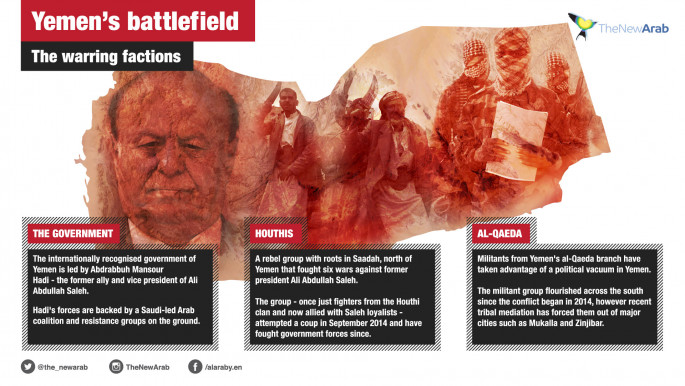Aid and airstrikes: The UAE's legacy in Yemen
More than 160,000 tonnes of food and some 111,000 tonnes of medical supplies were among the supplies sent, officials said on Wednesday, as well as nearly £600 million in development funding.
Five power stations were built, including two in the southern coastal Aden city where residents suffer from a lack of electricity for several hours during the day.
"The UAE was in the forefront of countries who hurried to send relief and assist Yemen to ride over the current crisis, support its stability and unity, and stand with its people,” Minister of State for International Cooperation, Reem al-Hashimy said.
It did so "by providing all forms of assistance needed to realise and fulfil the aspirations of Yemeni people for building, development and stability," she added, noting that the aid was given between April 2015 and July 2016 as part of the Gulf State’s initiative to lay the foundations for development in the war-torn country.
The United Arab Emirates, which boasts one of the region's most equipped military, is a pivotal and active member in the Saudi-led Arab coalition involved in a war with Yemen’s Houthi rebels.
 |
But despite the obvious show of good-will, UN figures maintain more than 6,400 people, mostly Yemeni civilians, have been killed in the country since the Arab coalition launched an air campaign |  |
It has suffered several losses since it began operations in March 2015, with media reports suggesting more than 80 Emirati soldiers have so far been killed in the conflict.
Last September marked the deadliest in the history of the UAE’s military when 45 of its troops were killed in a rebel missile attack in Yemen’s Marib province.
In the temporary capital, the UAE boasts widespread support from locals who regularly raise its flag as a show of gratitude for its assistance in driving out Houthi rebels in the summer of 2015.
But despite the obvious show of good-will that is only reminiscent of the late founder of the UAE – UN figures maintain more than 6,400 people, mostly Yemeni civilians, have been killed in the country since the Arab coalition launched an air campaign against Houthi rebels last March.
The war has driven 2.8 million people from their homes and left more than 80 percent of the population needing humanitarian aid – a situation described as a "humanitarian catastrophe" by the international governing body.
 |
The war has driven 2.8 million people from their homes and left more than 80 percent of the population needing humanitarian aid – a situation described as a 'humanitarian catastrophe' by the international governing body |  |
Ongoing air raids across the country have continued to lead to the destruction of homes, hospitals, markets and schools, prompting the UN to place Saudi Arabia– which leads the coalition – on a list of children’s rights violators.
This week alone, at least 14 people were killed in three days of the coalition's continous bombardment of several positions across the country.
Positions in north and central Yemen including Saada, Hajja and Ibb were also hit by the raids.
Despite this, the coalition seems to be picking up steam with confirmation of the US State Department approval of a potential sale of military equipment to Saudi Arabia worth around $1.15 billion.
Included in the sale are more than 130 Abrams battle tanks, 20 armoured recovery vehicles and various other types of military equipment that are undoubtedly expected to be utilised in its war in Yemen.




